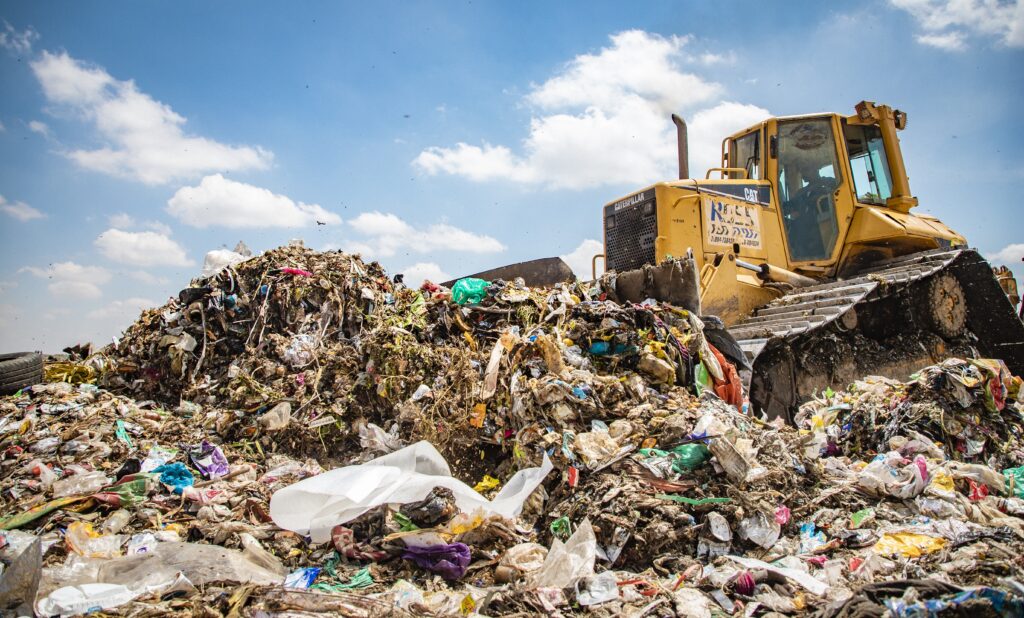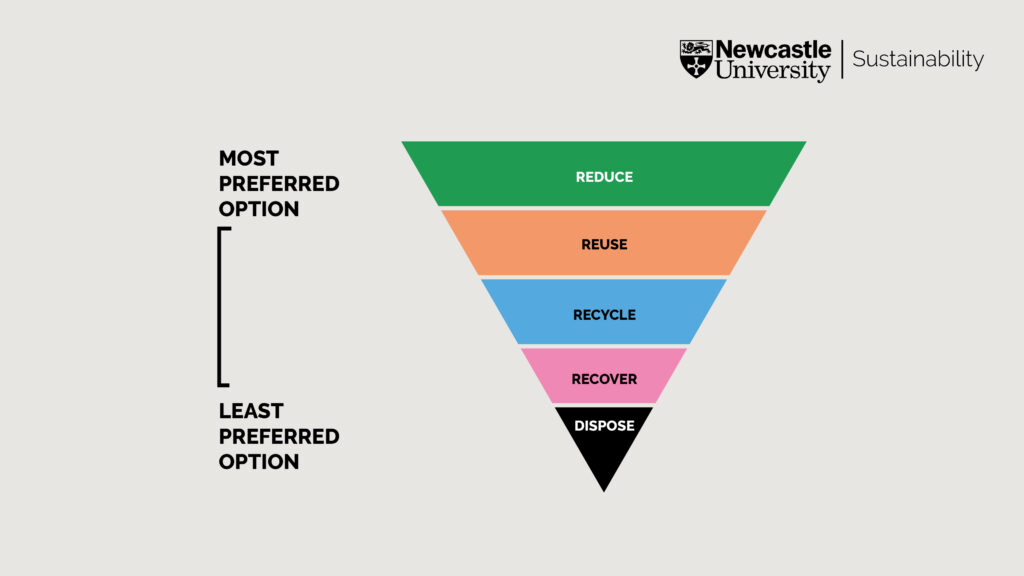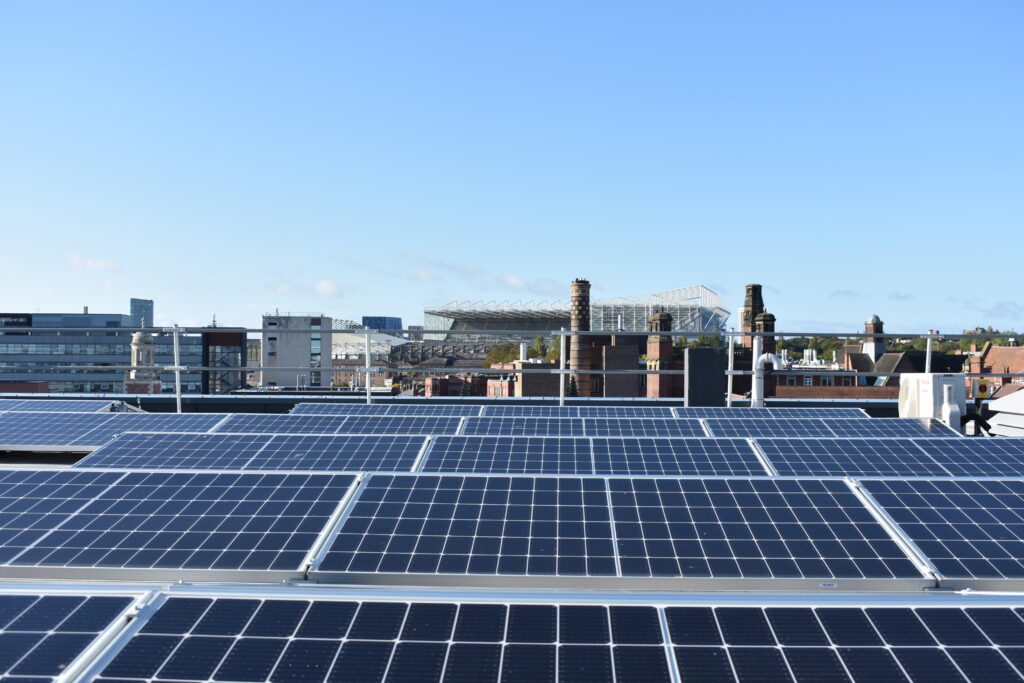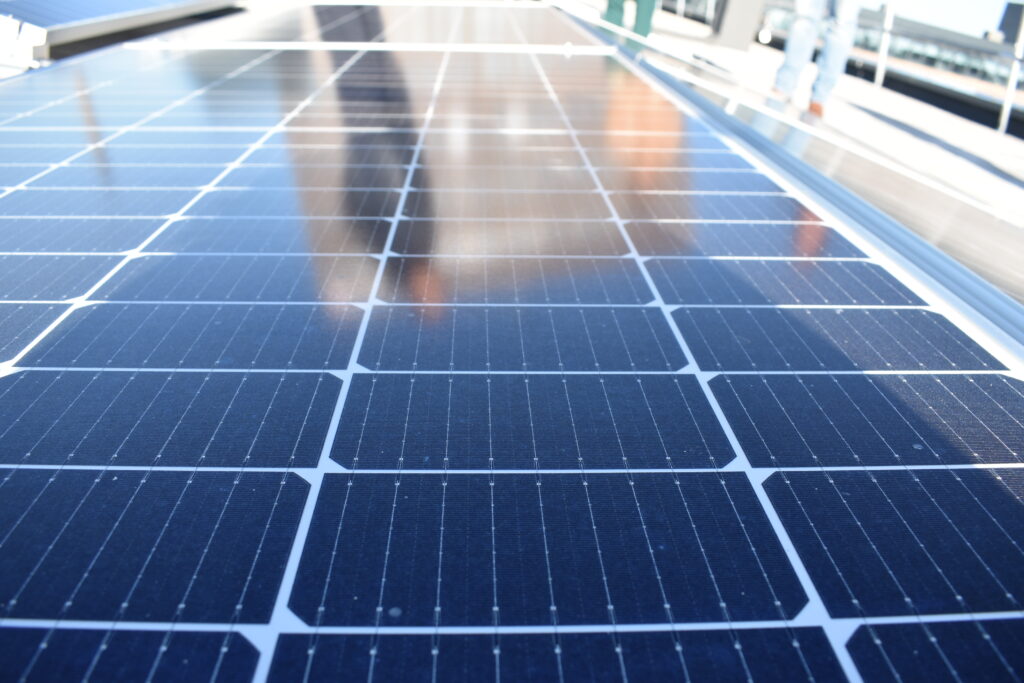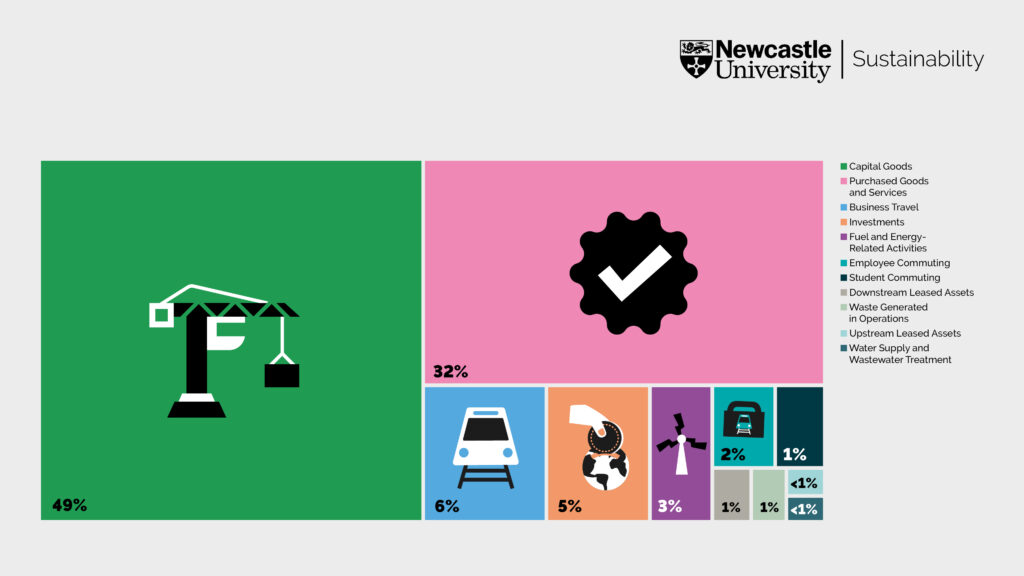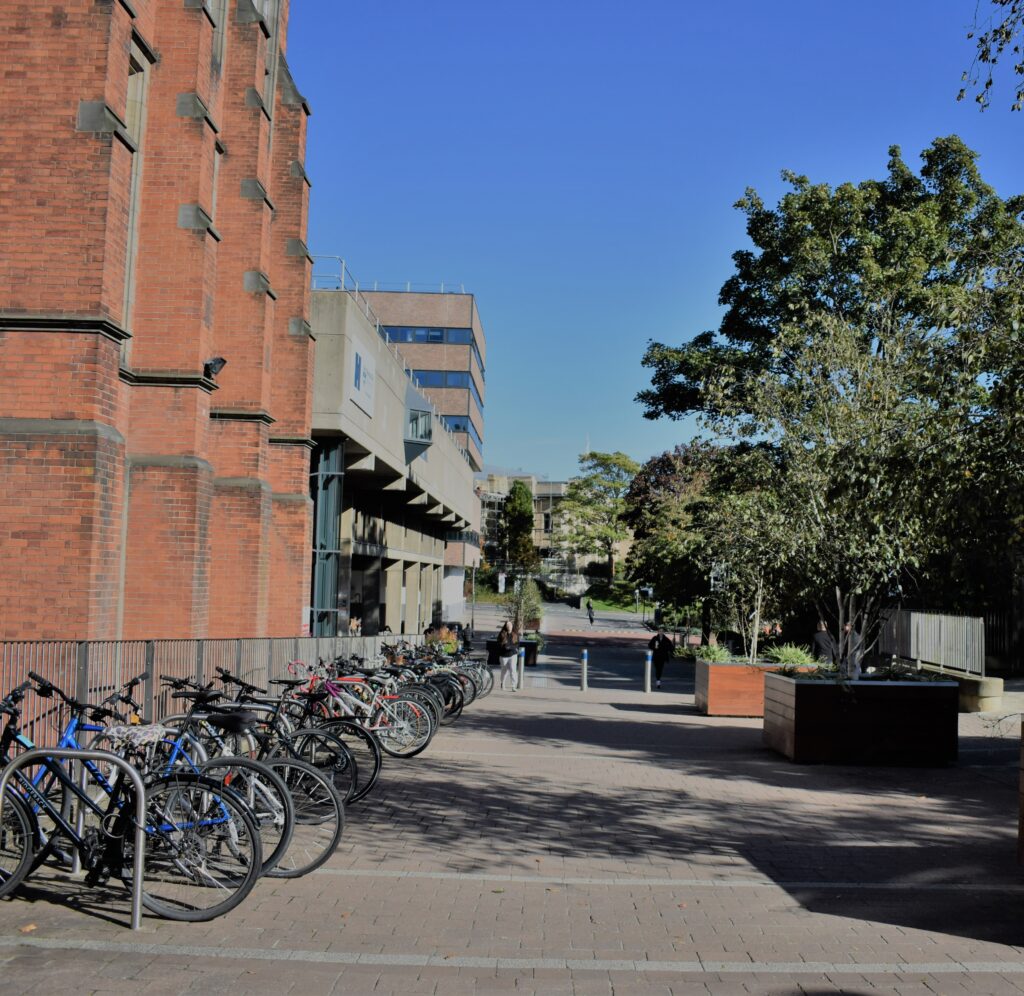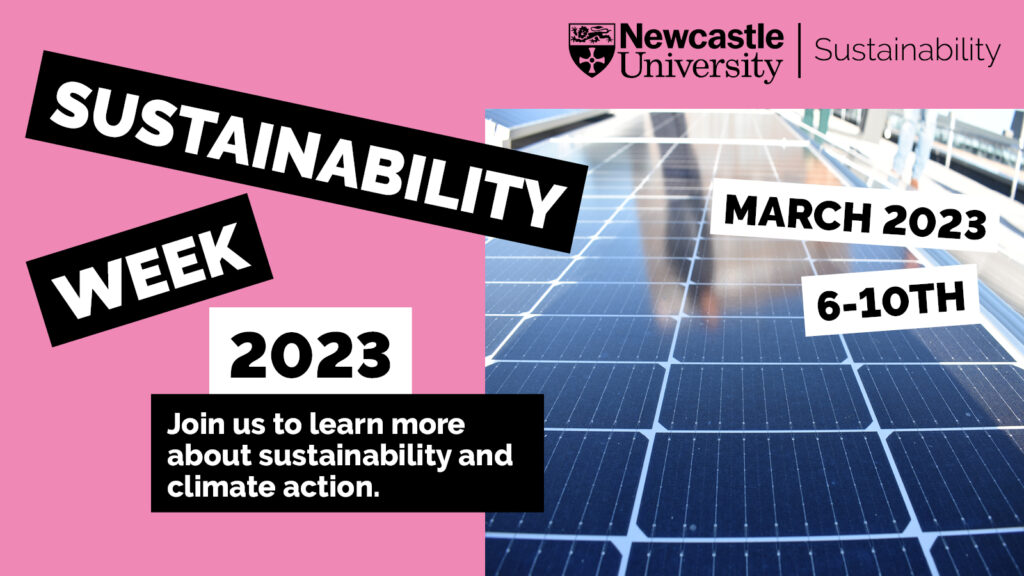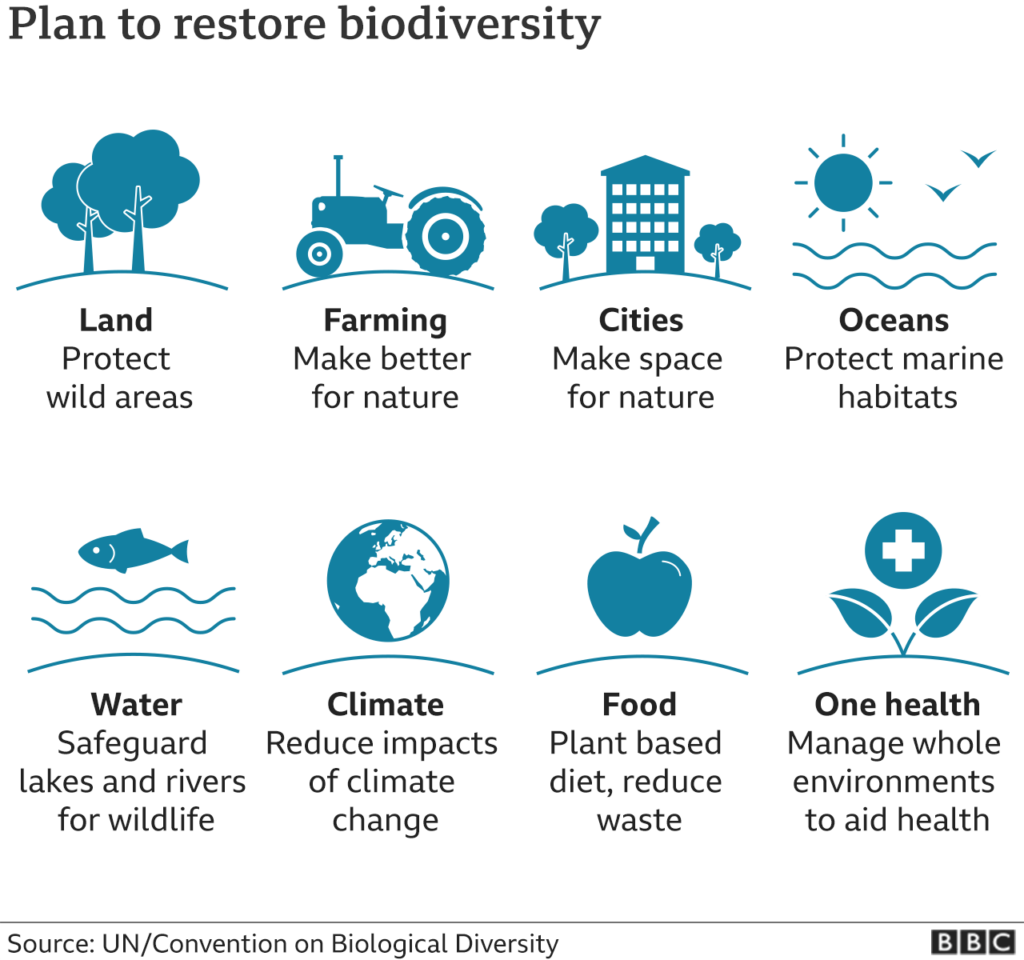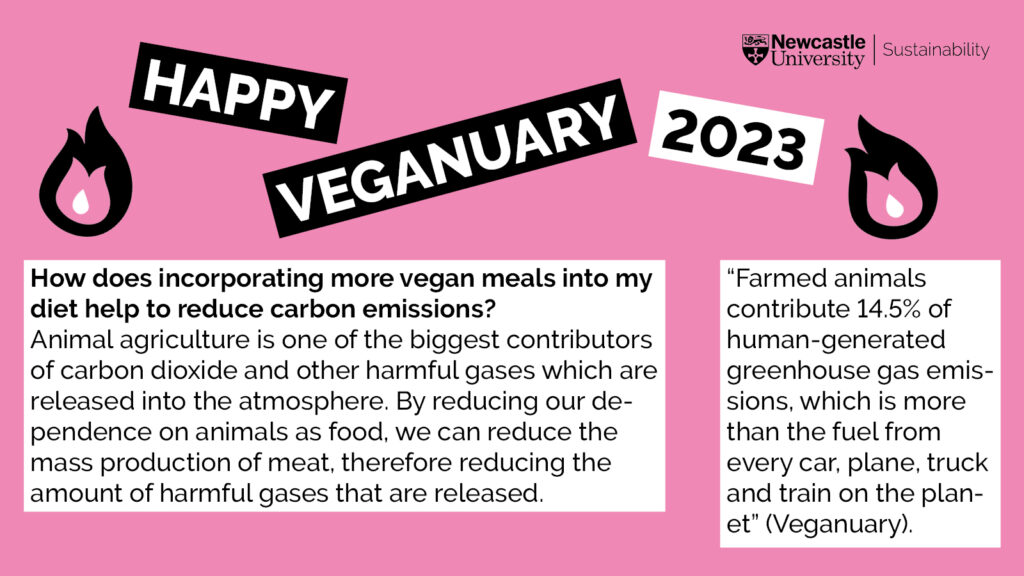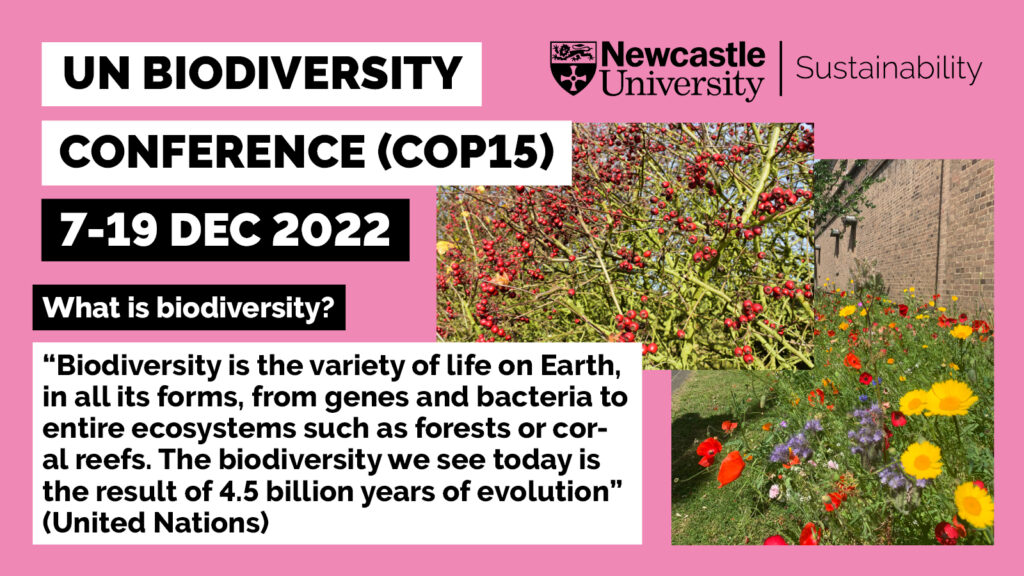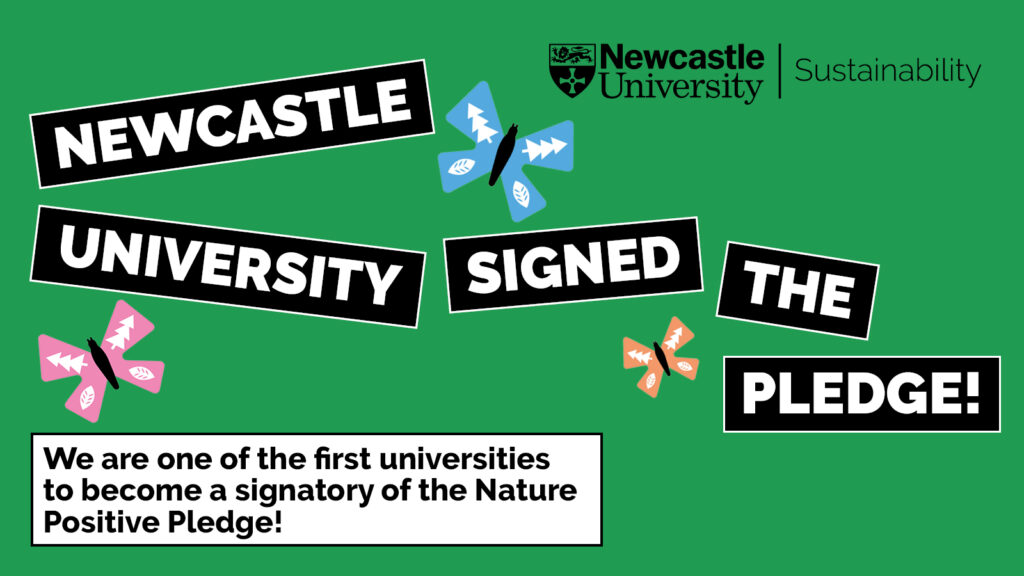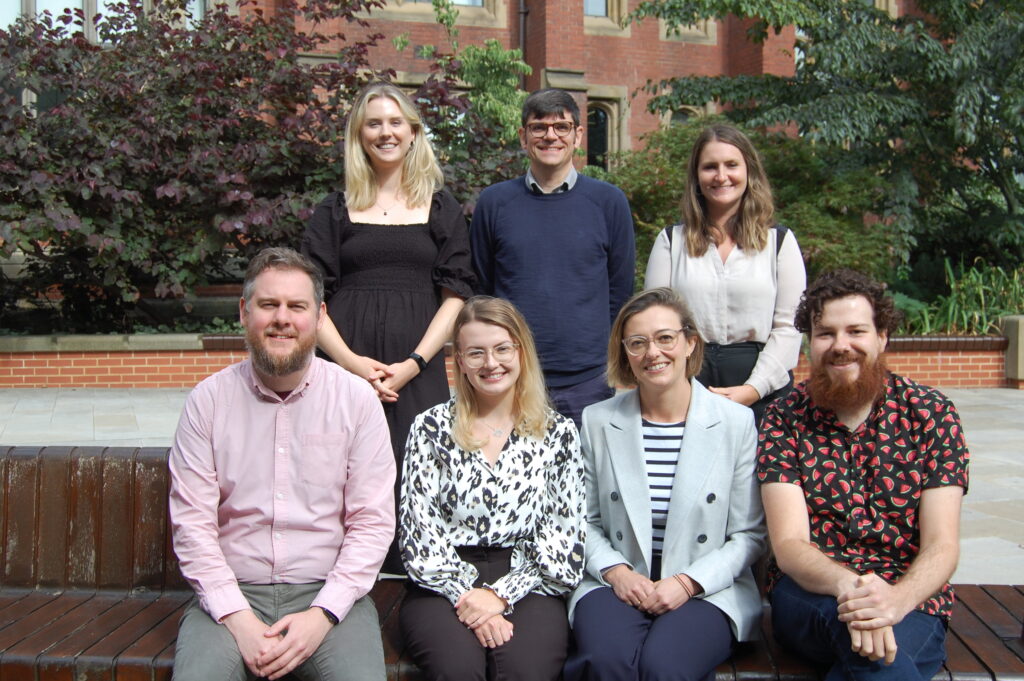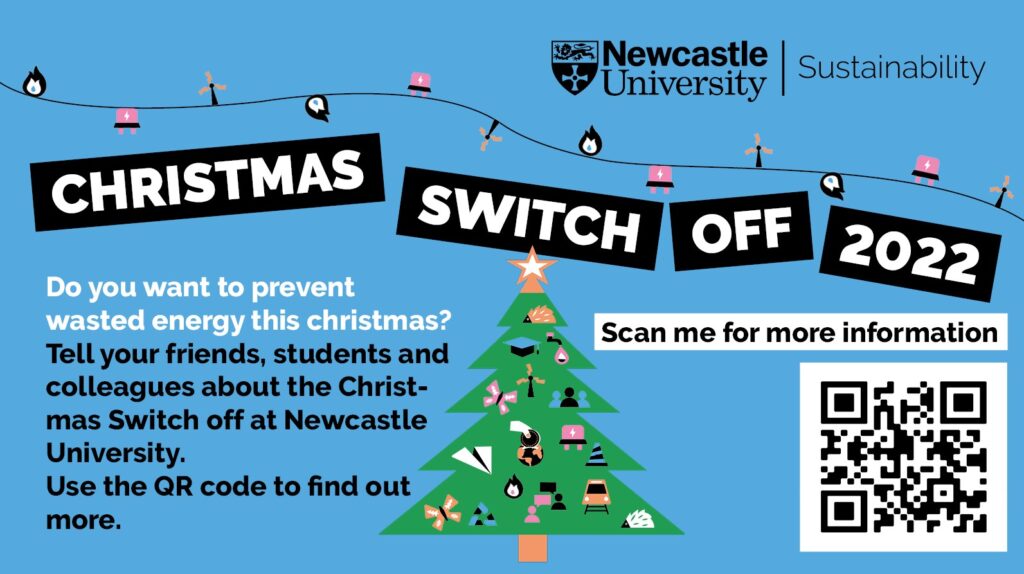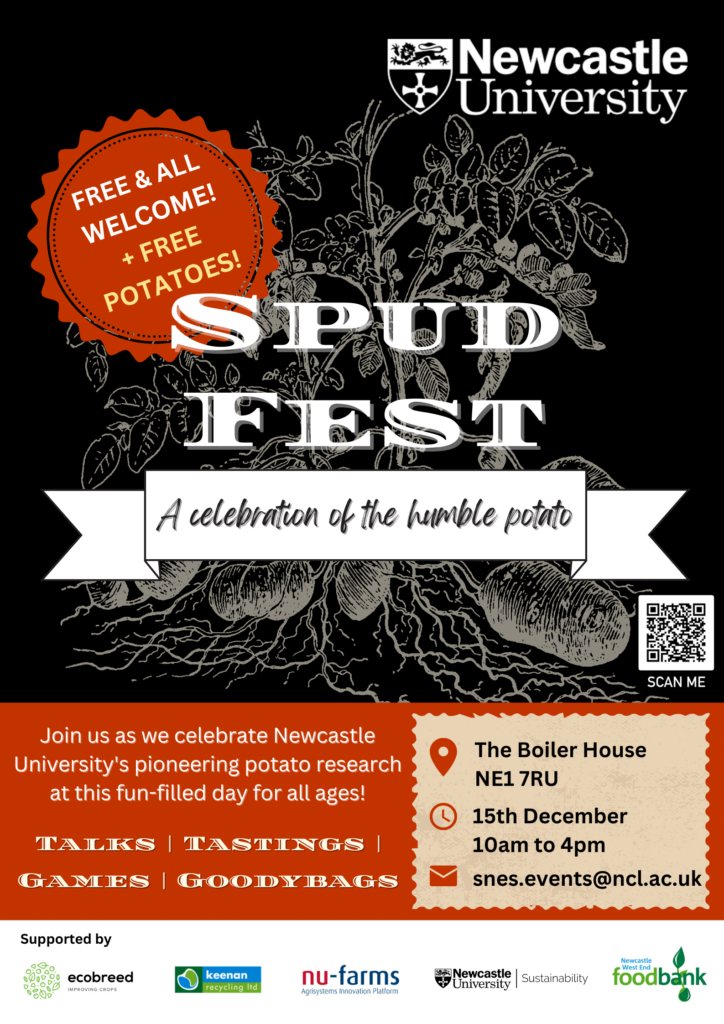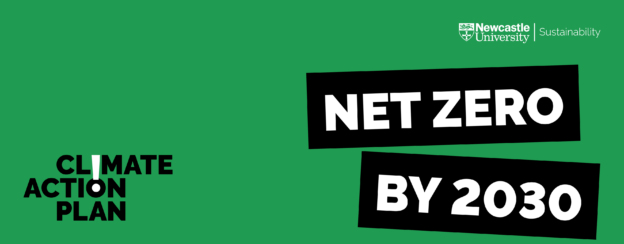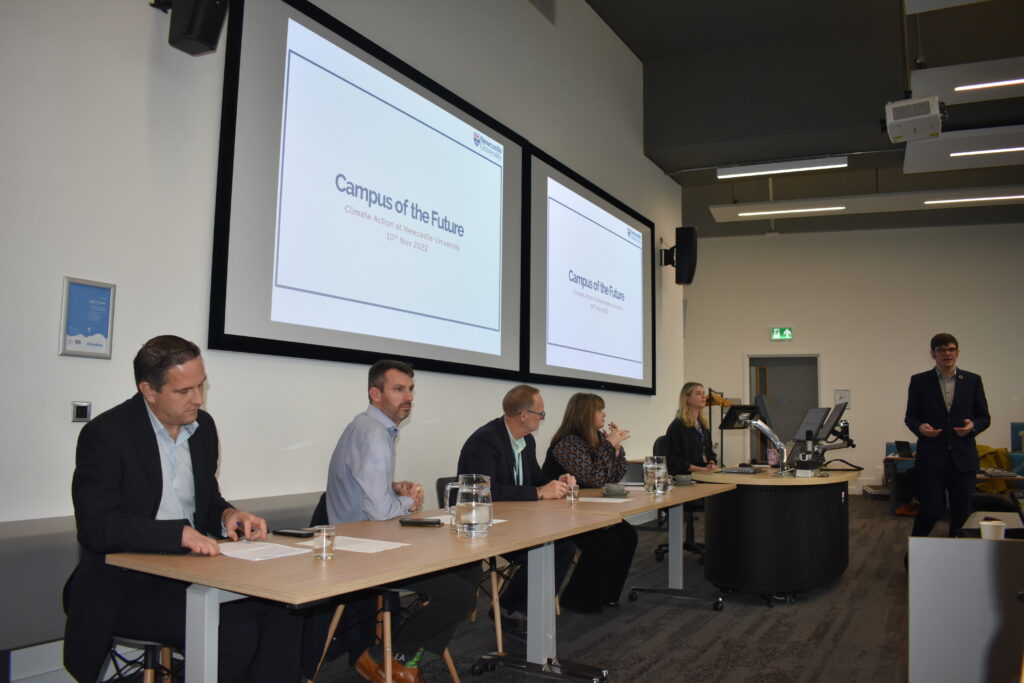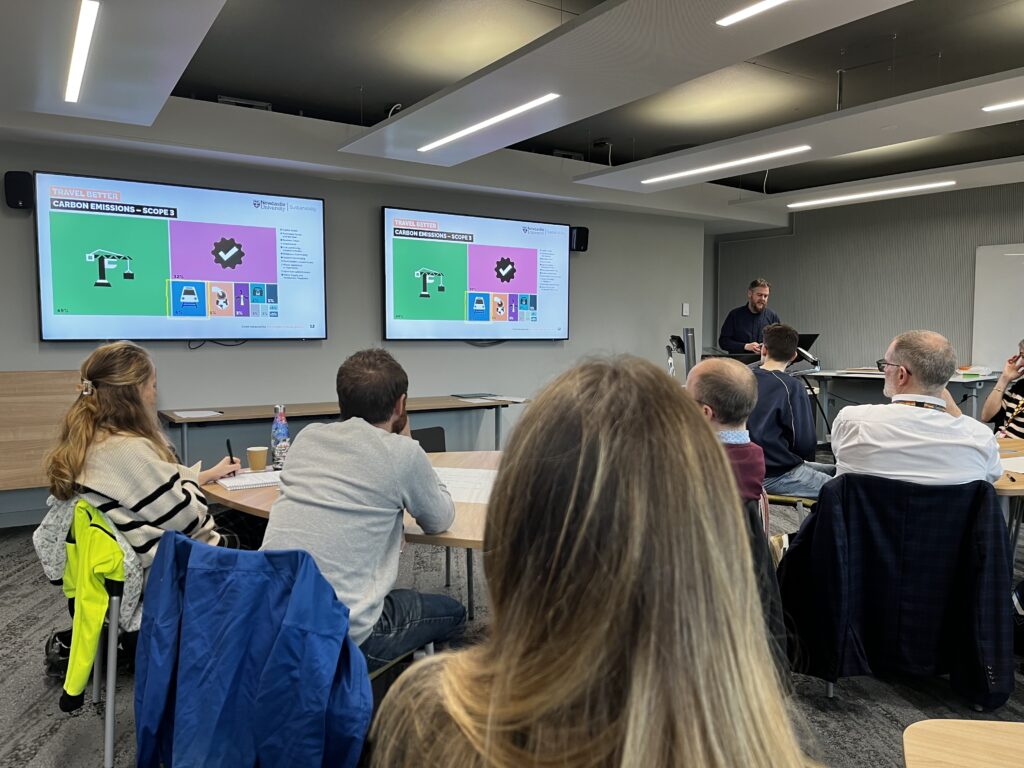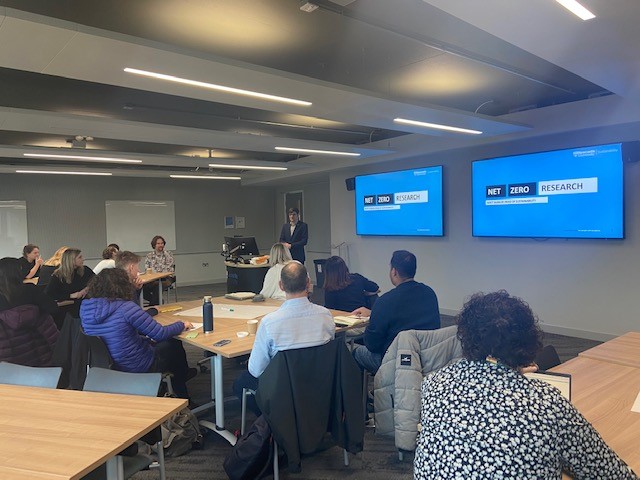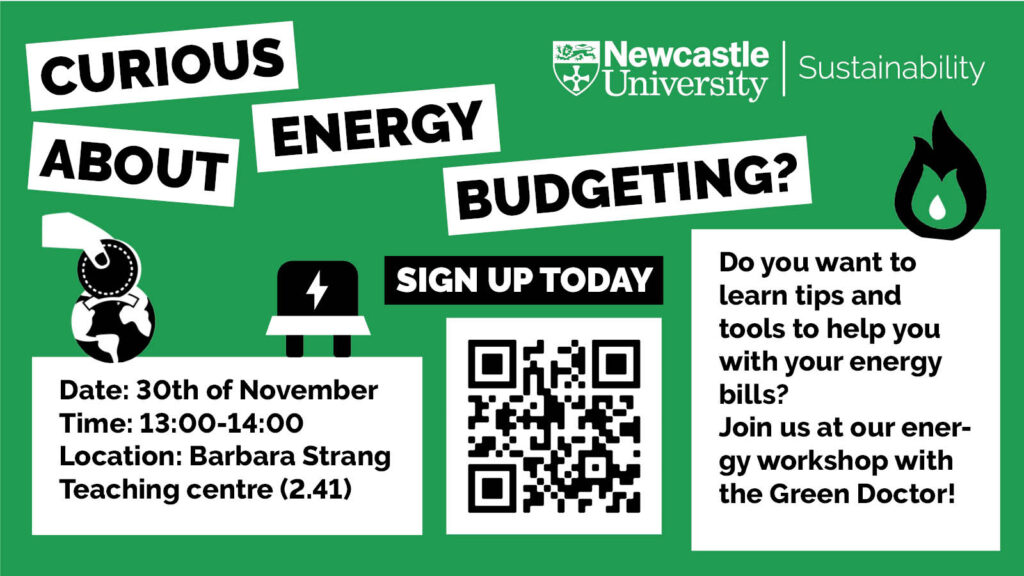Reduce, reuse, and recycle are three strategies that can help us protect the environment. The ‘Three R’s’ were first publicised in the 1970s around the same time the universal logo for recycling was created, but do you know what they really mean?
The ‘Three Rs’ are actually listed in order of importance.
Reduce
Reduce is the most effective of the three because it involves decreasing the amount of waste we generate in the first place. By reducing our consumption of goods and resources, we can minimize the amount of waste that needs to be managed or disposed of, which avoids all the emissions and pollution that are produced form recycling or disposing of the waste. However, we also avoid producing the emissions and pollution associated with the manufacturing and production of the items in the first place.
If you would like to learn more about waste reduction you can read our post about International Day of Zero Waste.
Reuse
Reuse is the next best option because it involves finding new ways to use items that would otherwise be thrown away. Reusing or preparing items for reuse involves assessing the condition of items, and determining if they can be restored to a usable condition. This may include repairing damaged items, cleaning them, or upgrading them. Once the items have been restored, they can be sold or donated to others for use. At the University, we do this through our IT contractor and furniture reuse partners who take items for refurbishment or reuse. We also have a dedicated mailing list for furniture reuse available to all colleagues – it currently has over 600 members! Small amounts of furniture that need a new home can be listed for another member to claim to reduce the need for purchasing new furniture or equipment, and to prevent it going to waste.
Recycling
Recycling is the last of the ‘Three Rs’ but it’s still incredibly important. Recycling helps conserve natural resources, reduce landfill waste, save energy, reduce greenhouse gas emissions, and create jobs and economic benefits.
Putting the correct things in the recycling bin can be complex, as each country, each council in the UK and even each organisation may have a different list of what you can put in a recycling bin. To make it EVEN MORE complicated, just because an item has the recyclable symbol on it, doesn’t really mean you can recycle it!
Our new recycling posters provide guidance on what can go in our recycling bins and if in doubt, scan the QR code on the poster to check our Waste A-Z. If you’re STILL in doubt, then pop your waste into the general waste bin as this is better than potentially contaminating the recycling bins.
It is very important that the recyclables placed within the bins are clean and are not contaminated by food or non-recyclables as this could result in all the waste being sent to an incinerator rather than being recycled.
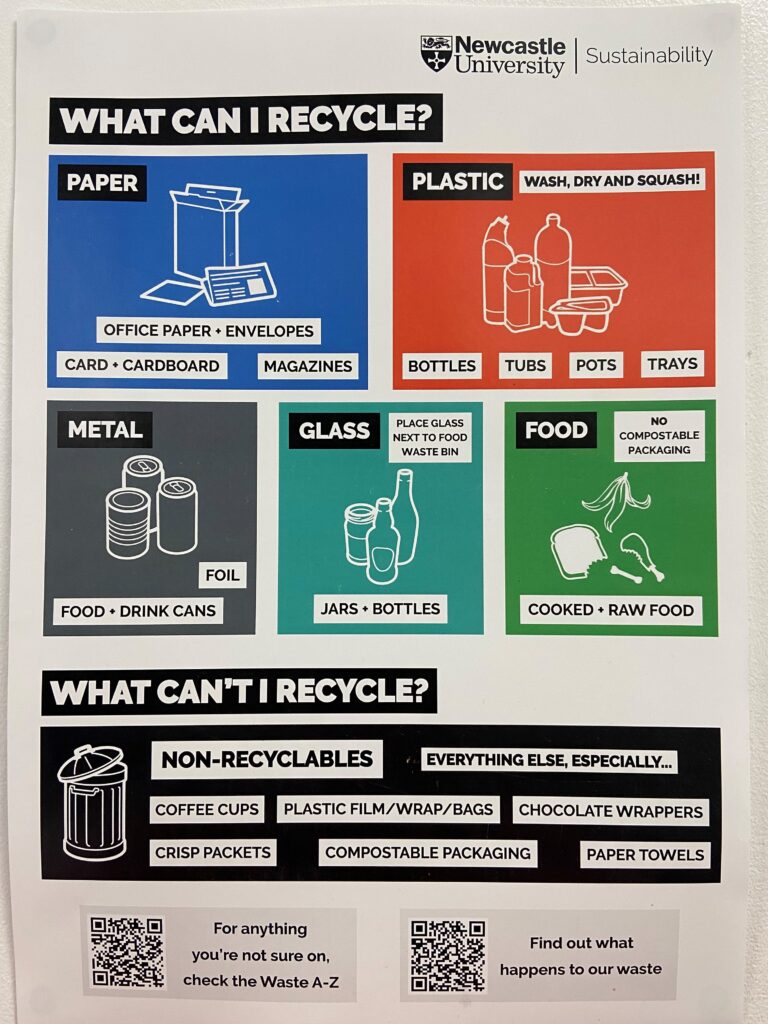
Where does Newcastle University’s waste go?
Our non-recyclables (the black bins) are taken to Wallsend and then loaded onto a trailer to go to the Energy from Waste plant at Ferry Bridge in West Yorkshire. The plant burns the waste at high temperatures in a controlled environment to generate energy. The heat produced by the combustion is used to generate steam, which in turn drives turbines to produce electricity. The electricity generated by the plant is then sent to the National Grid to be distributed to homes and businesses. The Plant has advanced pollution control measures in place to minimize emissions and meet strict environmental regulations.
Our recycling waste is taken to a Material Recovery Facility (MRF). At the MRF the recycling materials that have been placed into the recycling bins are sorted and graded into different categories. They are then bailed and passed on to processing plants to be turned into new materials. For example, the PET (primarily plastic bottles) we produce is currently processed at the Biffa Polymers facility in Seaham, where it is turned from baled raw materials back into high-purity plastic pellets that is then sold to drinks makers and other manufacturers for a range of purposes, from food packaging to clothing. This is currently one of the most advanced PET recycling facilities in the world.
Our food waste is taken by a contractor to an anaerobic digestion facility. Here, billions of bacteria ‘feed’ on the food waste and produce a methane rich ‘biogas’ which is then used to generate electricity.

